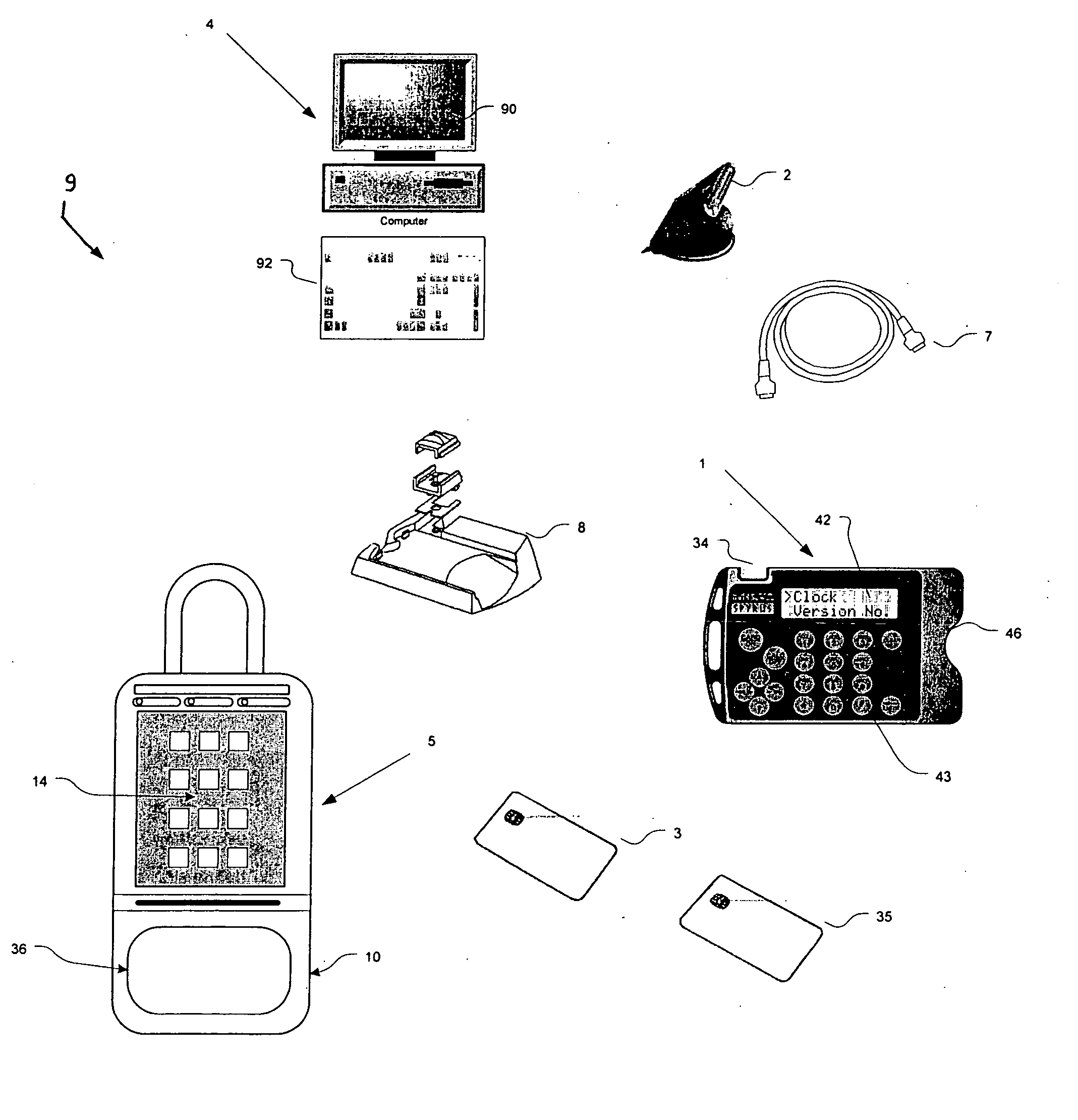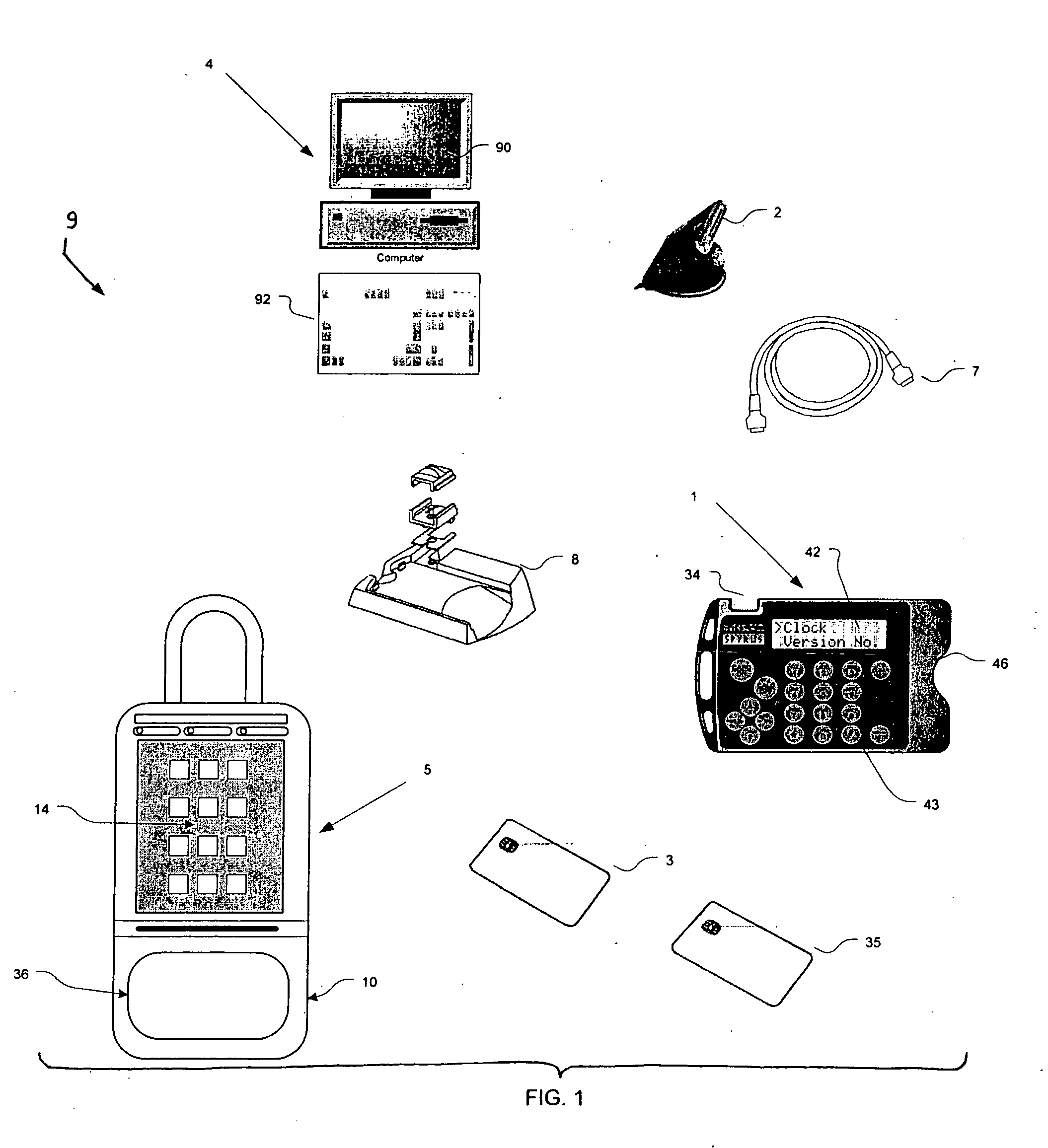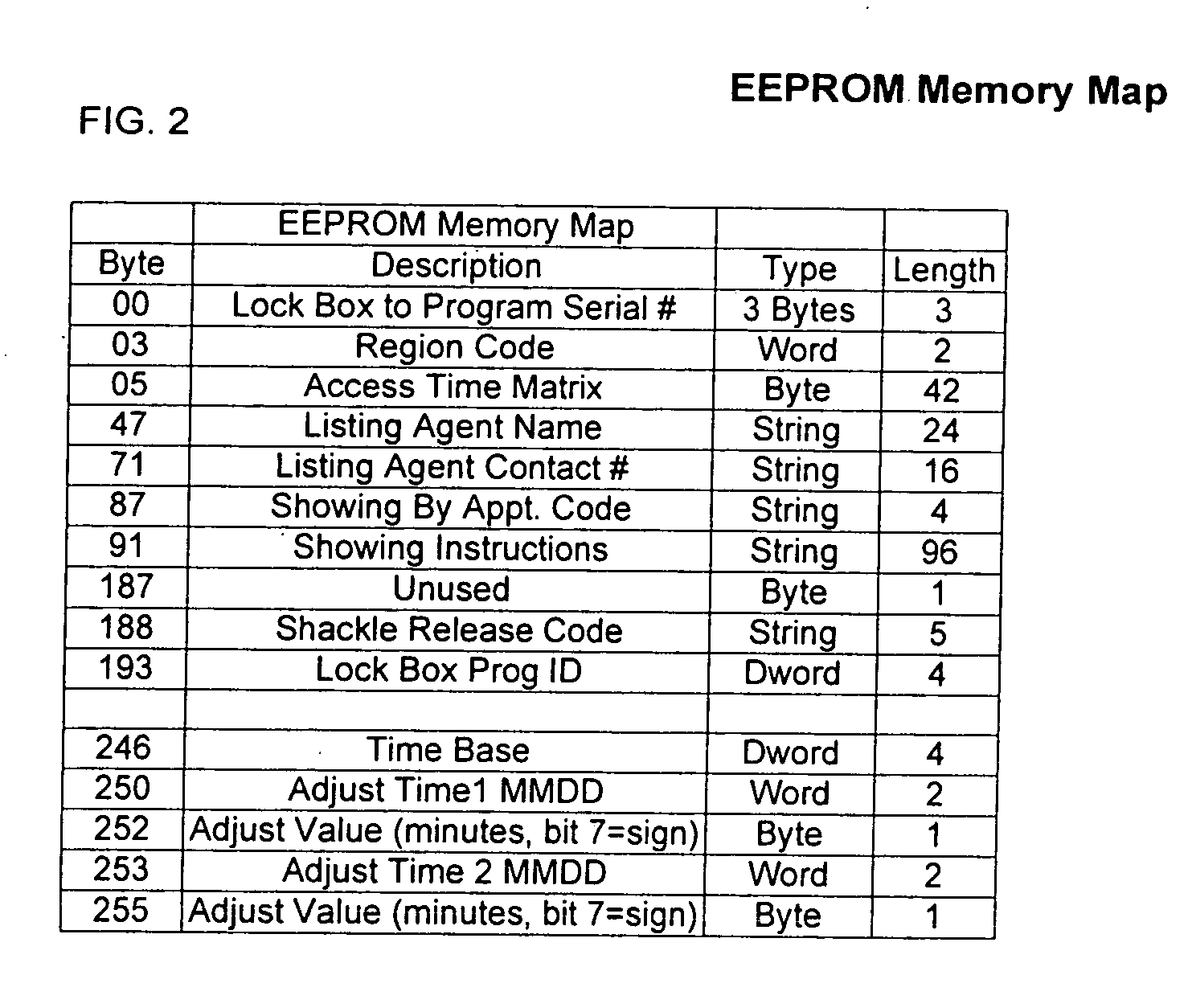[0009] Accordingly, it is an
advantage of the present invention to provide a lock box
system used in real estate sales systems in which the user carries a very small
portable computer and a
credit card-sized memory card that interfaces both to the
portable computer and to a lock box. The lock box itself generates the access code as a random number, which the user can learn only by entering correct information on the portable computer after the portable computer reads data stored on the memory card after the memory card has interacted with the lock box
electronics. The user manually enters the access code on a keypad of the lock box to obtain access to the key compartment.
[0010] It is another
advantage of the present invention to provide a lock box system used in real estate sales systems in which the user carries a mobile telephone (or other communications device) and a
credit card-sized memory card, in which the user receives an access code from a central “clearinghouse computer,” and in which the access code periodically changes over time using an
algorithm know both to the lock box and to the clearinghouse computer. The user manually enters the access code on a keypad of the lock box to obtain access to the key compartment.
[0011] It is a further
advantage of the present invention to provide a lock box system used in real estate sales systems which has many different optional features, such as a “showing by appointment” feature that requires a special access code, and the ability to display special showing instructions.
[0012] It is yet another advantage of the present invention to provide a lock box system used in real estate sales systems in which the user carries only a
credit card-sized memory card, and in which the user receives an access code from a central “clearinghouse computer,” or from a regional “office computer.” The access code periodically changes over time using an
algorithm known both to the lock box and to the clearinghouse computer, and the “epoch time” is divided into time intervals (“window intervals” or “window interval periods”) that themselves are used to help create “interval dividend numbers” or “window interval dividends” or “code life interval dividend” numeric values. The user manually enters the access code on a keypad of the lock box to obtain access to the key compartment, or to unlock a
shackle holding the lock box to a fixed object. Alternatively, the data resident on the portable memory card is directly transferred to the lock box computer, and this data allows automatic access to the key compartment, or it automatically unlocks the
shackle.
[0013] Additional advantages and other novel features of the invention will be set forth in part in the description that follows and in part will become apparent to those skilled in the art upon examination of the following or may be learned with the practice of the invention.
[0014] To achieve the foregoing and other advantages, and in accordance with one aspect of the present invention, a method for operating an electronic lock box system is provided, in which the method comprises the steps of: (a) providing an electronic lock box having a compartment with a controlled access member, a first memory circuit for storage of data, a first keypad, a first communications port, and a first
processing circuit; (b) providing a portable computer having a second memory circuit for storage of data, a second keypad, a display, a second communications port, and a second
processing circuit; (c) providing a portable memory device containing a non-volatile third memory circuit; (d)
coupling the portable memory device to the first communications port of the electronic lock box so as to permit communications therebetween, and loading access code information from the first memory circuit to the third memory circuit; (e) uncoupling the portable memory device from the first communications port of the electronic lock box; (f)
coupling the portable memory device to the second communications port of the portable computer so as to permit communications therebetween, and reading the access code information from the third memory circuit to the second memory circuit; (g) entering identification information using the second keypad, and if the identification information is correct as determined by the portable computer, displaying the access code information on the display to a human user; and (h) entering the access code information using the first keypad, and if the access code information is correct as determined by the first
processing circuit, releasing the controlled access member of the compartment.
 Login to View More
Login to View More  Login to View More
Login to View More 


